
20 Years of Frontex
Two decades ago, Frontex became operational — the result of European countries uniting around a shared vision to manage the EU’s external borders together. Explore our timeline to discover the key milestones and the evolution of Frontex and European Border Management.
Explore 20 milestones from our history.
Two decades ago, Frontex became operational — the result of European countries uniting around a shared vision to manage the EU’s external borders together. Explore our timeline to discover the key milestones and the evolution of Frontex and European Border Management.
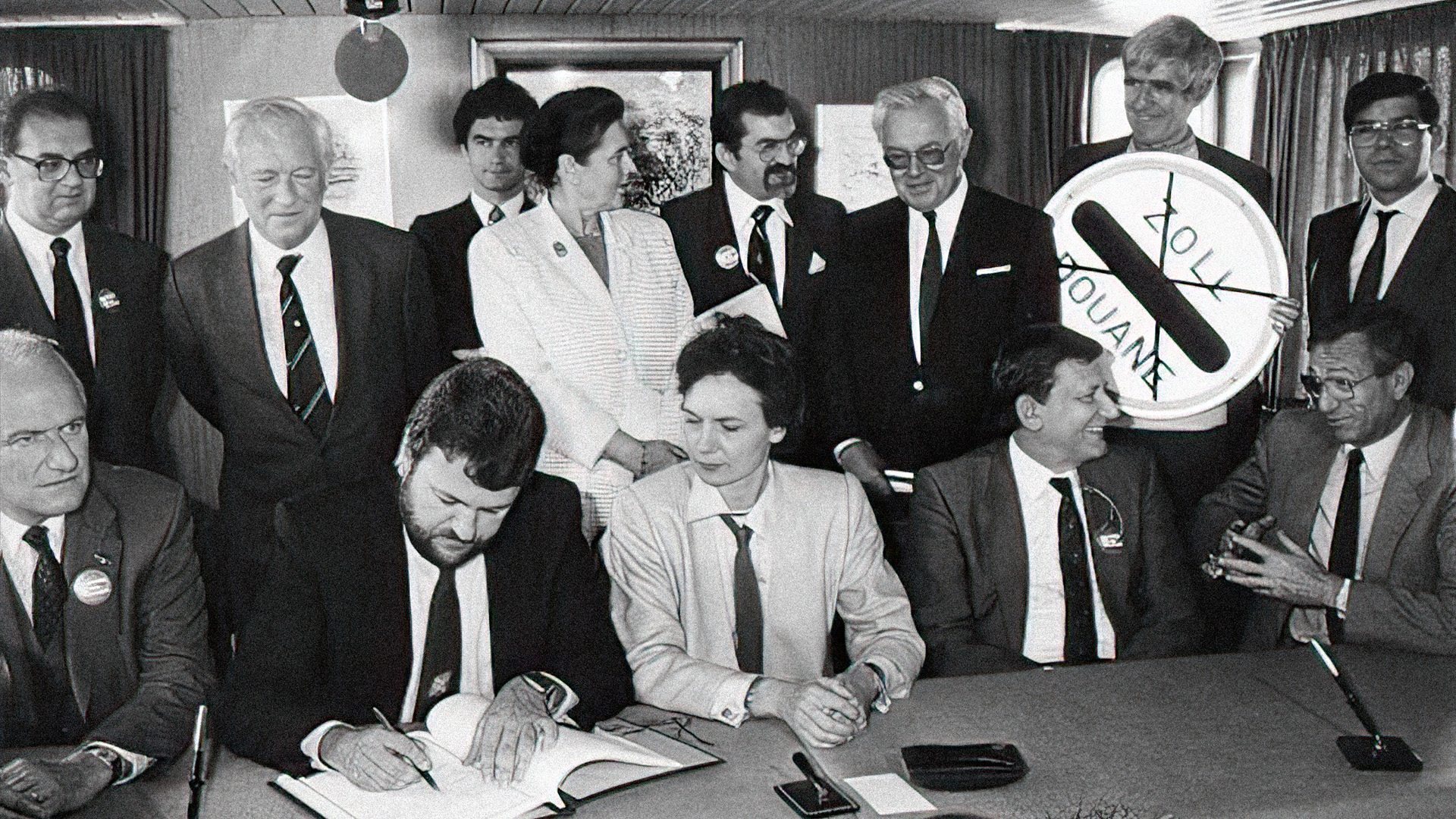
In 1985 five European nations signed the Schengen Agreement, launching a borderless area of free movement for their citizens. Now spanning 29 countries, the Schengen Area is one of the world’s largest free-movement zones. Key treaties, including the 1997 Treaty of Amsterdam and the 2007 Lisbon Treaty, further embedded free movement into the EU’s legal framework, making it a core pillar of European unity.
In 1985 five European nations signed the Schengen Agreement, launching a borderless area of free movement for their citizens. Now spanning 29 countries, the Schengen Area is one of the world’s largest free-movement zones. Key treaties, including the 1997 Treaty of Amsterdam and the 2007 Lisbon Treaty, further embedded free movement into the EU’s legal framework, making it a core pillar of European unity.
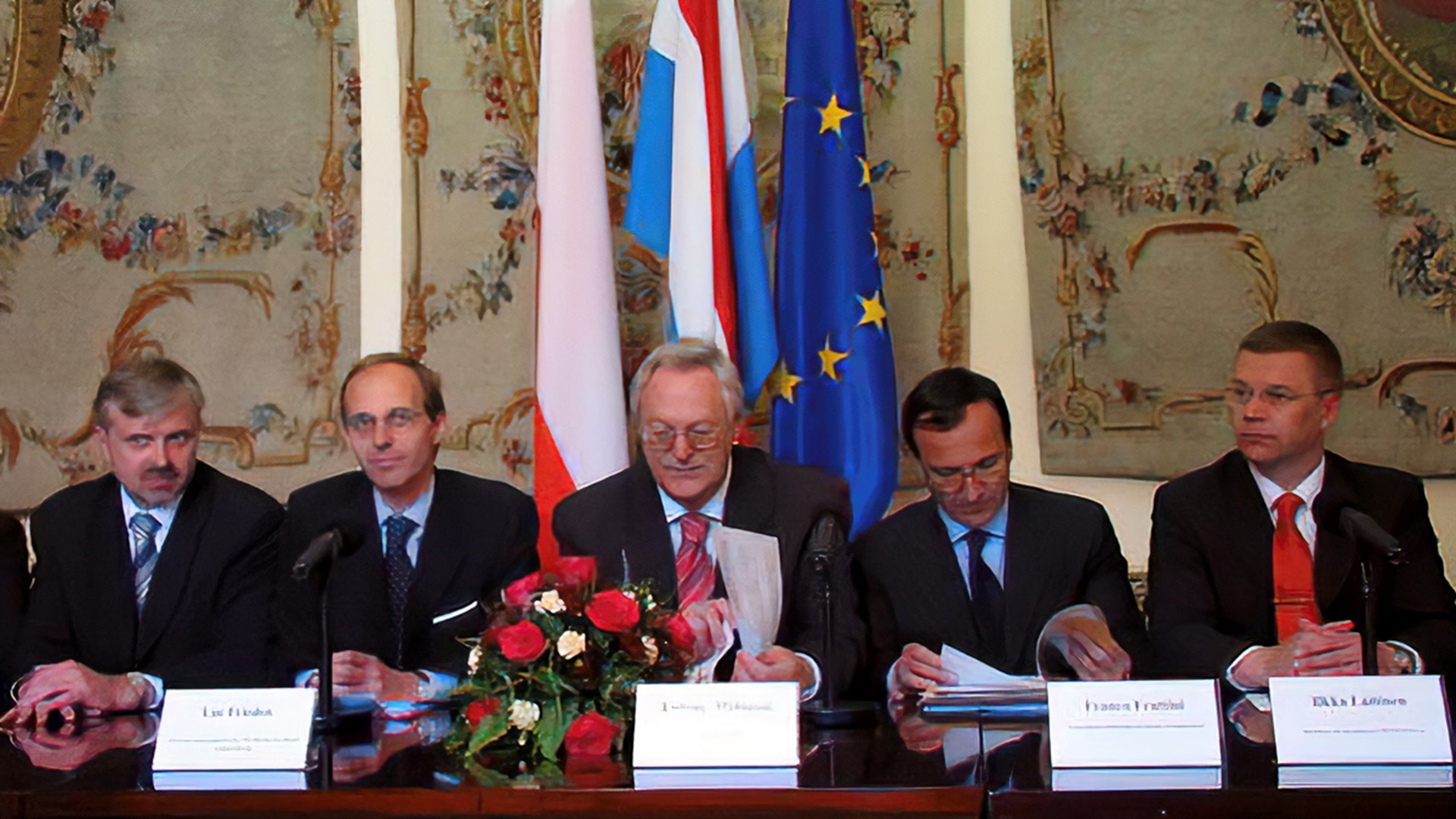
In 2005 Frontex was created (based on an EU decision from 2004) to enhance cooperation among EU Member States in managing external borders and addressing cross-border crime. In May 2005 the Frontex Management Board, composed of representatives from Member States, Schengen Associated Countries, and the European Commission, held its inaugural meeting. Frontex officially commenced operations in October of that same year.
In 2005 Frontex was created (based on an EU decision from 2004) to enhance cooperation among EU Member States in managing external borders and addressing cross-border crime. In May 2005 the Frontex Management Board, composed of representatives from Member States, Schengen Associated Countries, and the European Commission, held its inaugural meeting. Frontex officially commenced operations in October of that same year.
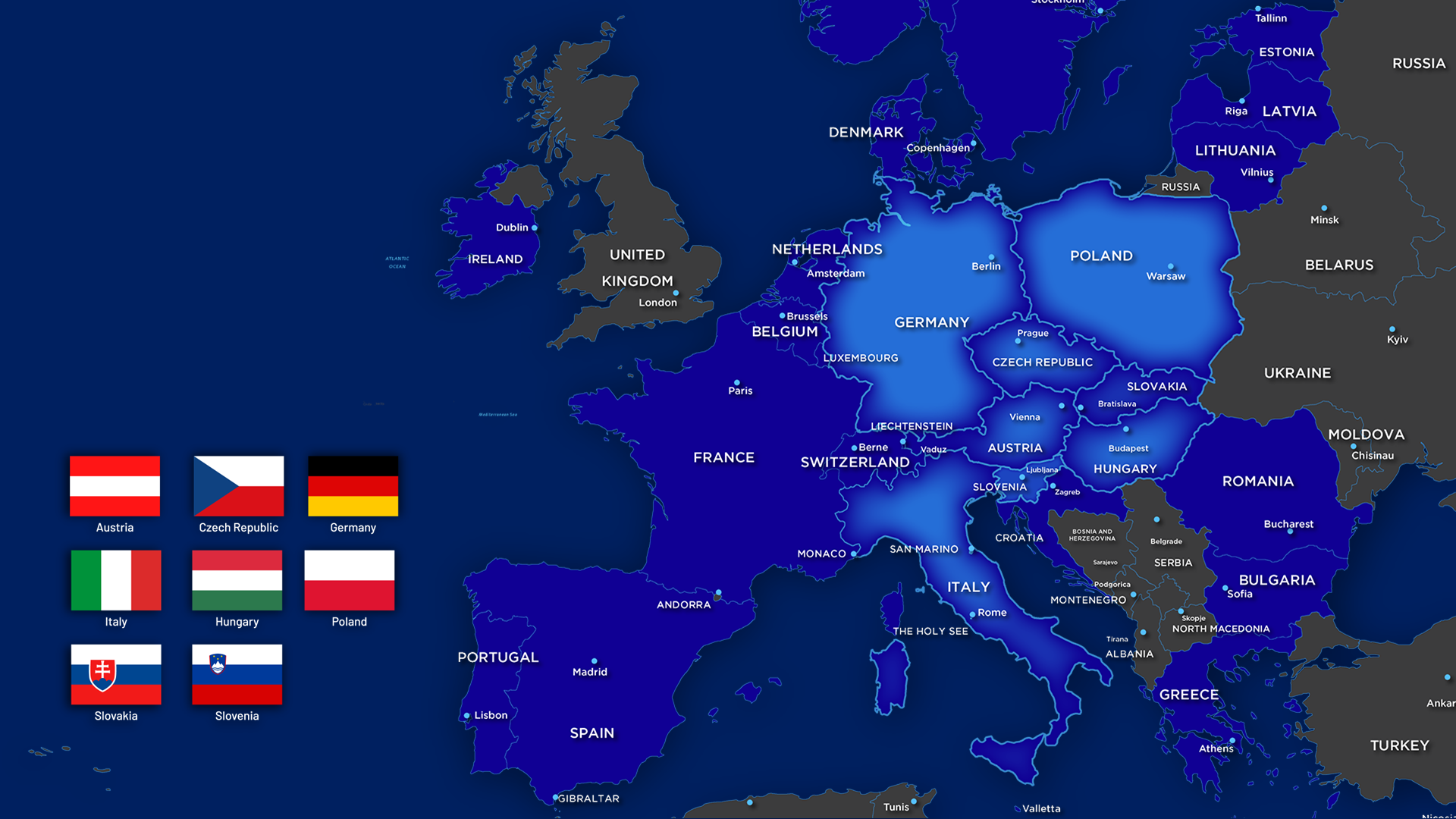
Frontex made history in December 2005 by launching its first joint land operation, involving Austria, the Czech Republic, Germany, Italy, Hungary, Poland, Slovakia, and Slovenia. This collaborative effort marked a significant step in strengthening border security and information sharing among participating Member States.
Frontex made history in December 2005 by launching its first joint land operation, involving Austria, the Czech Republic, Germany, Italy, Hungary, Poland, Slovakia, and Slovenia. This collaborative effort marked a significant step in strengthening border security and information sharing among participating Member States.
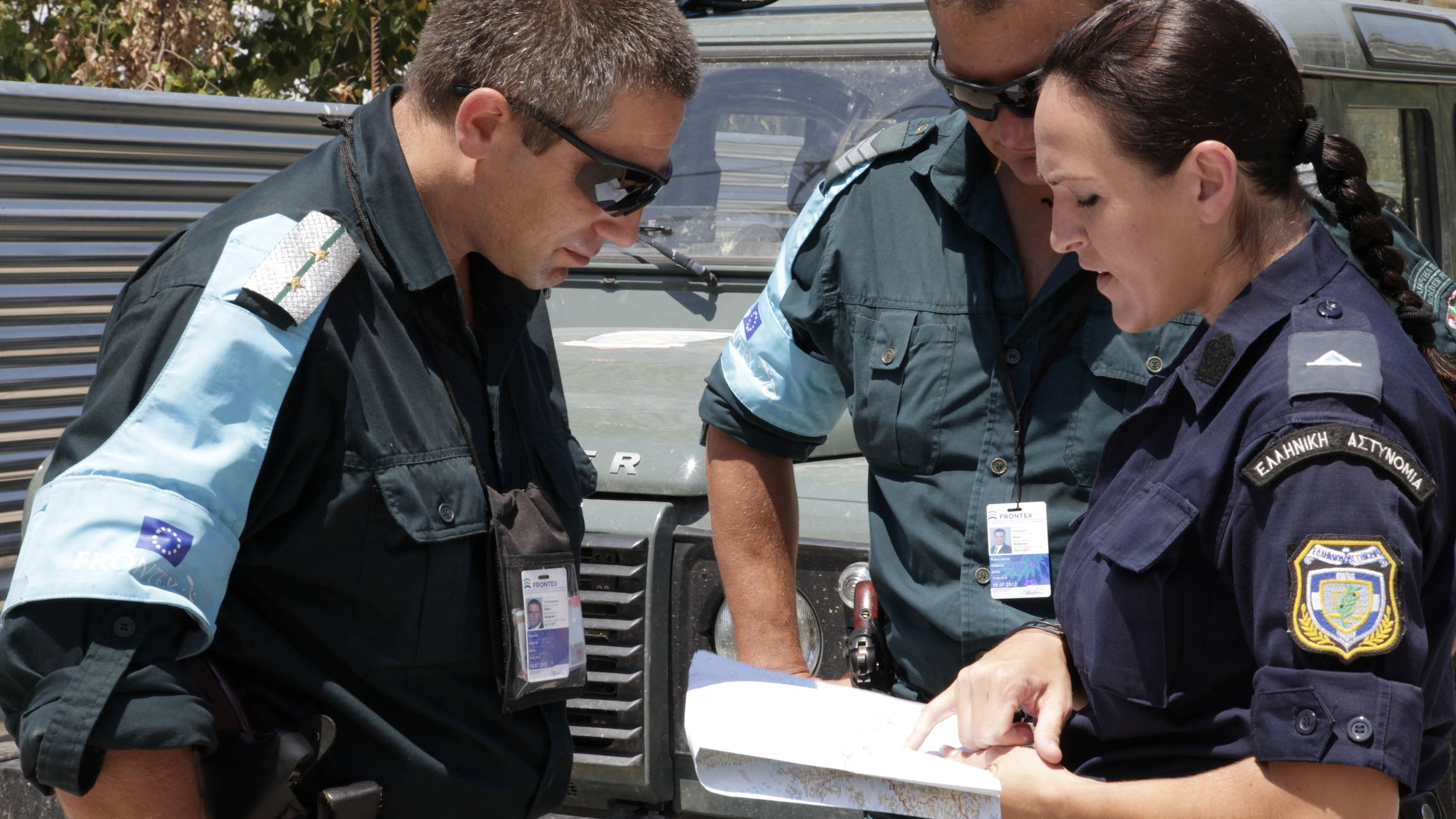
To bolster its border management capabilities, Frontex was granted additional powers in 2007. The Agency was authorised to deploy Rapid Border Intervention Teams, and building on this, in 2011, Frontex was tasked with establishing European Border Guard Teams. These teams, composed of officers from various Member States, were deployed to regions under high migratory pressure or other security challenges, contributing to a more coordinated and effective European border security response.
To bolster its border management capabilities, Frontex was granted additional powers in 2007. The Agency was authorised to deploy Rapid Border Intervention Teams, and building on this, in 2011, Frontex was tasked with establishing European Border Guard Teams. These teams, composed of officers from various Member States, were deployed to regions under high migratory pressure or other security challenges, contributing to a more coordinated and effective European border security response.
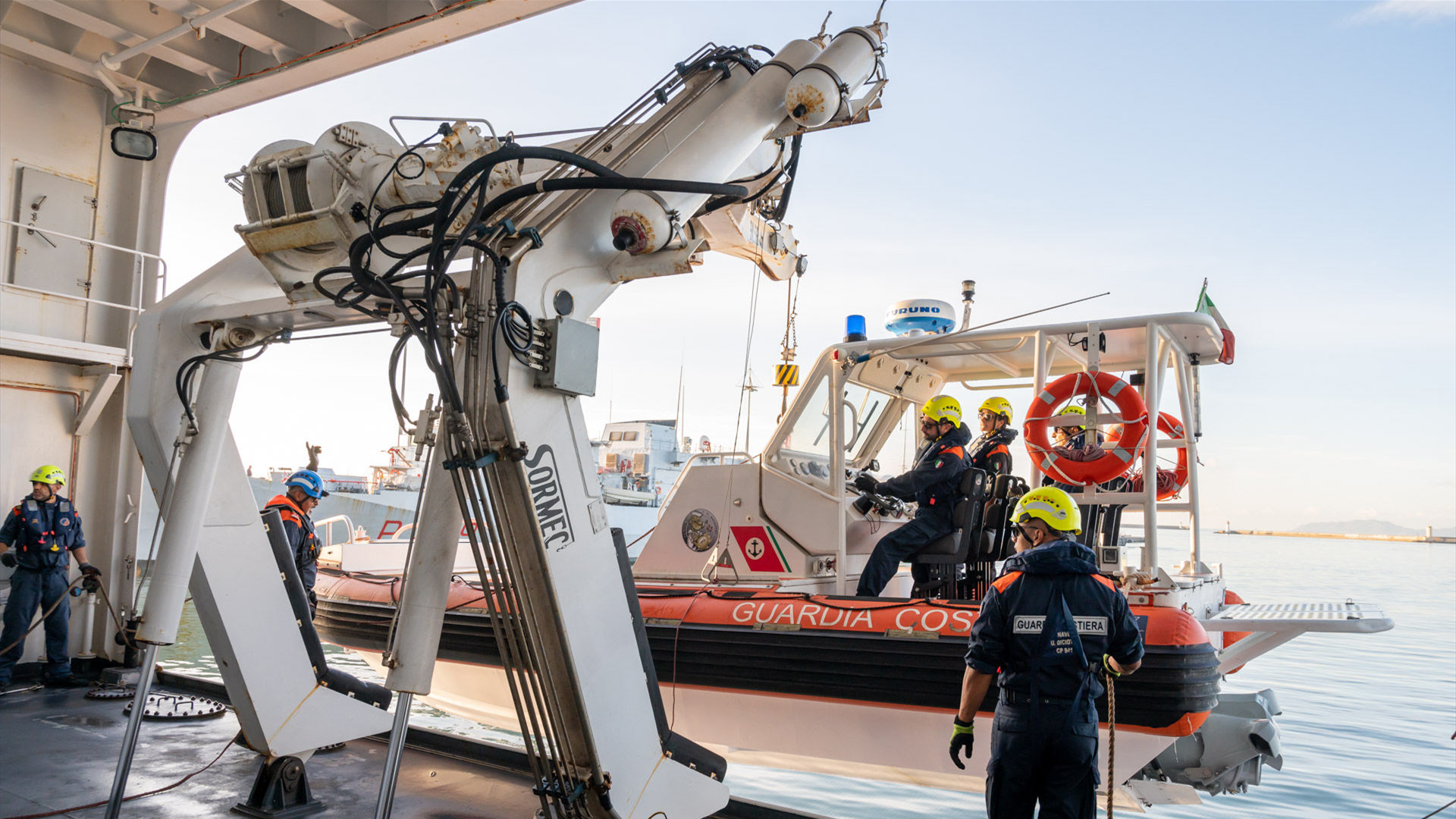
In 2009 Frontex took a proactive step in enhancing its operational capabilities by organising its first Sea Survival and Air-Naval Training Exercises. These crucial drills aimed to improve the skills and coordination of European coast guard organisations. To further strengthen its role in maritime operations Frontex continues to lead various exercises with Member States’ coast guard organisations in European waters.
In 2009 Frontex took a proactive step in enhancing its operational capabilities by organising its first Sea Survival and Air-Naval Training Exercises. These crucial drills aimed to improve the skills and coordination of European coast guard organisations. To further strengthen its role in maritime operations Frontex continues to lead various exercises with Member States’ coast guard organisations in European waters.
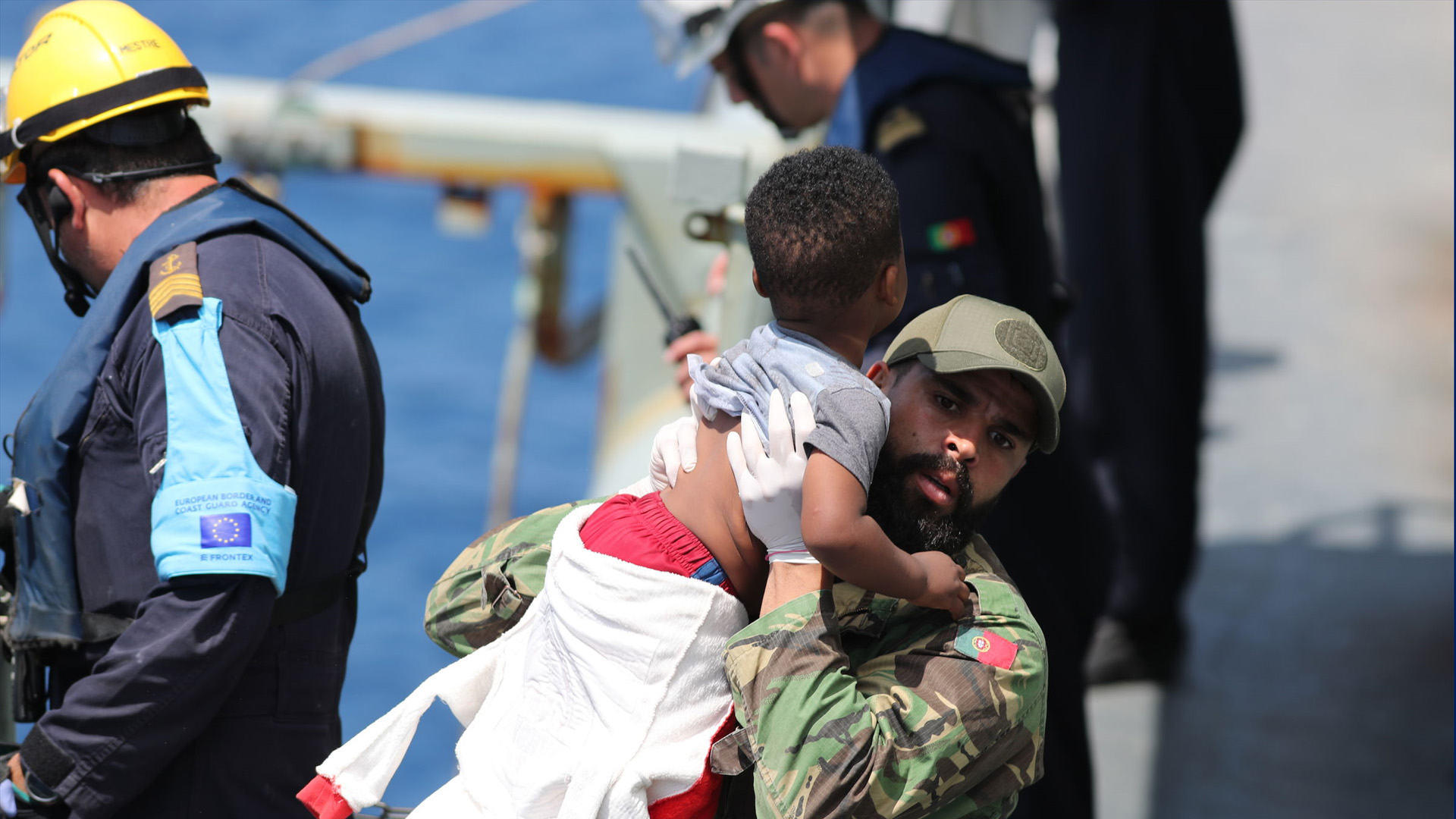
In 2012 the Frontex Consultative Forum on Fundamental Rights was established, bringing together key European institutions, international organisations, and civil society groups. This forum was created to provide independent advice to Frontex on its fundamental rights strategy, the functioning of its complaints mechanism, codes of conduct, training curricula, and other relevant matters, ensuring that the Agency’s operations align with human rights standards.
In 2012 the Frontex Consultative Forum on Fundamental Rights was established, bringing together key European institutions, international organisations, and civil society groups. This forum was created to provide independent advice to Frontex on its fundamental rights strategy, the functioning of its complaints mechanism, codes of conduct, training curricula, and other relevant matters, ensuring that the Agency’s operations align with human rights standards.
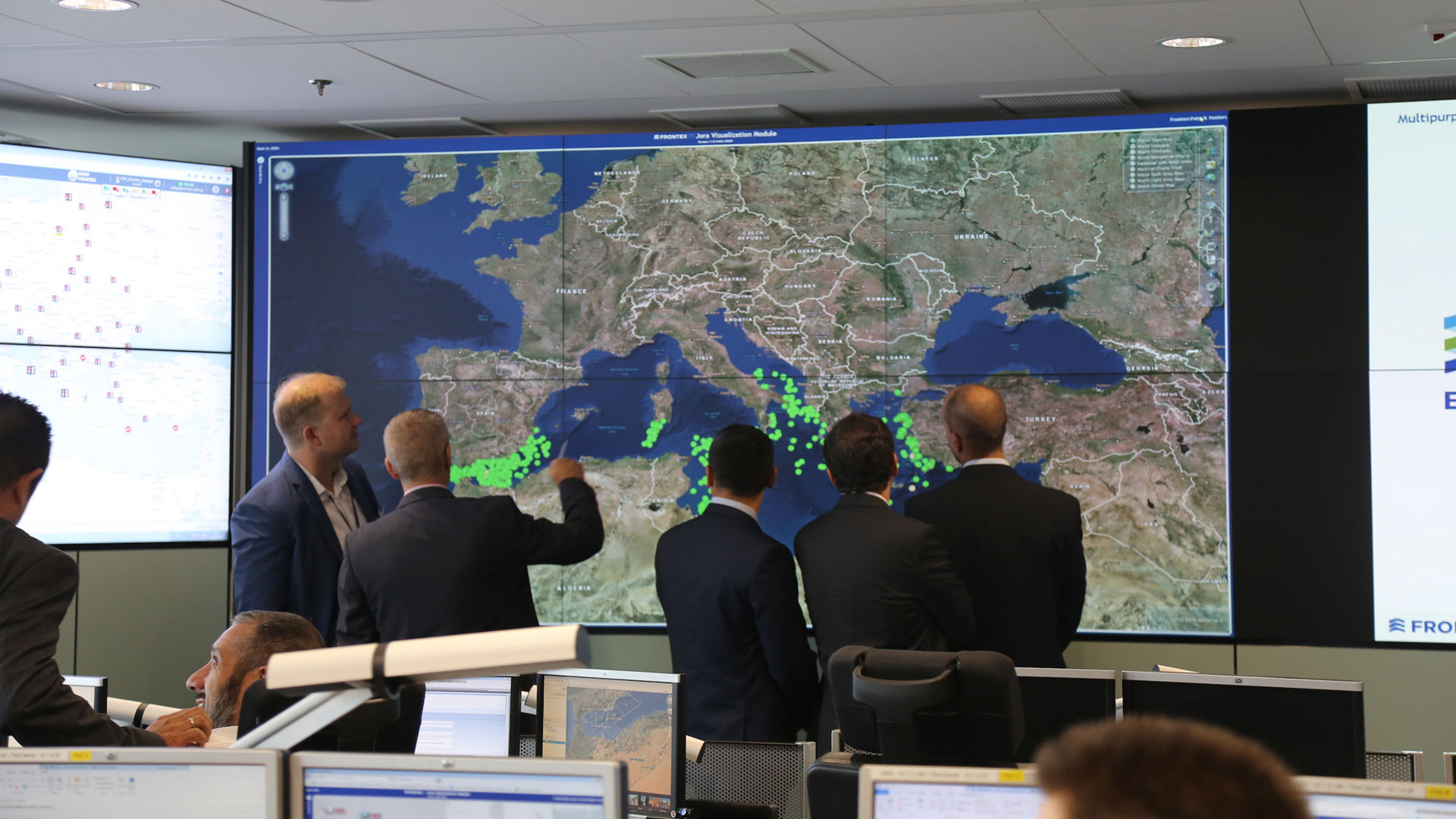
To enhance situational awareness and improve response capabilities at the external borders, the European Union established the European Border Surveillance System (EUROSUR) in 2013. This system provides a framework for information exchange and cooperation between EU Member States and Frontex, enabling a more coordinated and effective approach to border security challenges.
To enhance situational awareness and improve response capabilities at the external borders, the European Union established the European Border Surveillance System (EUROSUR) in 2013. This system provides a framework for information exchange and cooperation between EU Member States and Frontex, enabling a more coordinated and effective approach to border security challenges.
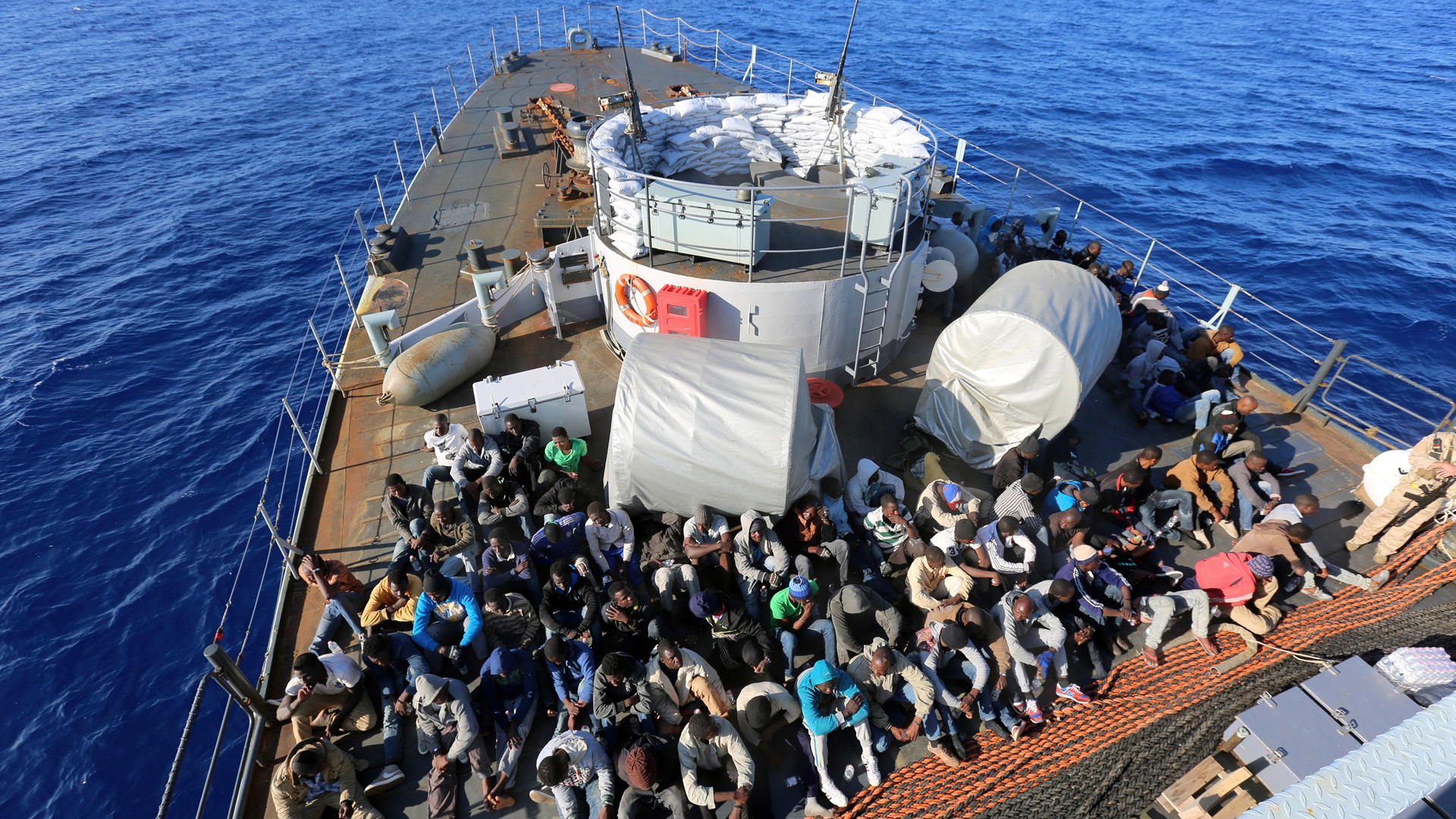
In 2015 Europe faced a significant migration crisis. To address the influx of refugees and migrants, Frontex launched a Rapid Intervention Operation in Greece. At the same time, Frontex vessels played a crucial role in saving thousands of lives in the Mediterranean Sea, demonstrating the Agency’s commitment to saving lives and border security.
In 2015 Europe faced a significant migration crisis. To address the influx of refugees and migrants, Frontex launched a Rapid Intervention Operation in Greece. At the same time, Frontex vessels played a crucial role in saving thousands of lives in the Mediterranean Sea, demonstrating the Agency’s commitment to saving lives and border security.
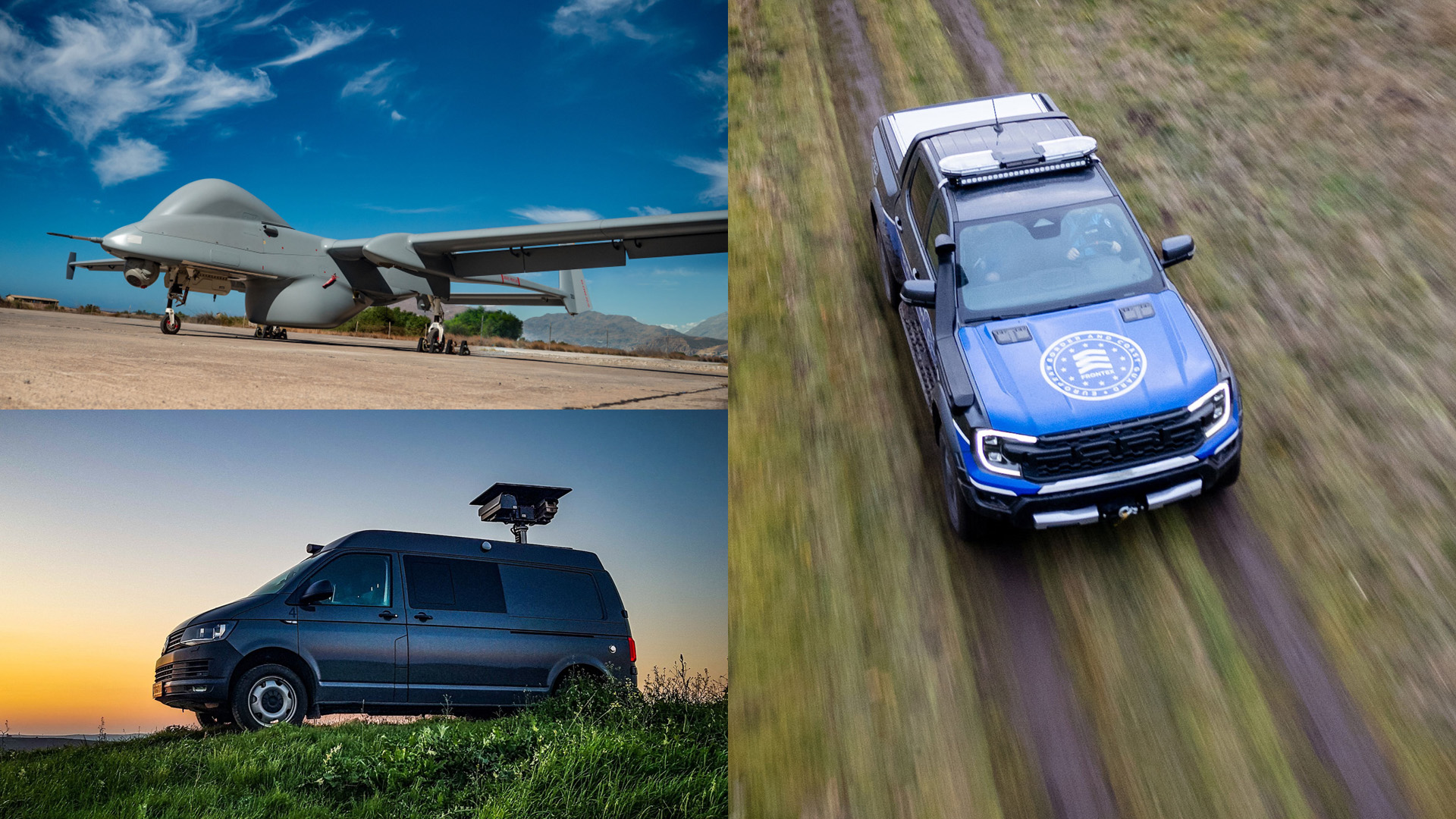
In 2019 Frontex deployed its own patrol vehicles for the first time. Since then, the Agency has further expanded its asset base, relieving pressure on the Member States participating in the Agency’s activities, which enables it to react faster to any developments at the EU’s external borders. Currently, the Agency provides its own patrol vehicles, thermal vision vans, and mobile offices, and in the future, plans to include its own vessels, planes, and drones.
In 2019 Frontex deployed its own patrol vehicles for the first time. Since then, the Agency has further expanded its asset base, relieving pressure on the Member States participating in the Agency’s activities, which enables it to react faster to any developments at the EU’s external borders. Currently, the Agency provides its own patrol vehicles, thermal vision vans, and mobile offices, and in the future, plans to include its own vessels, planes, and drones.

On 4 December 2019, Frontex’s mandate was significantly expanded. This expansion granted the Agency broader authority in areas such as EUROSUR, return operations, and cooperation with non-EU countries as well as the creation of the Standing Corps. These changes empowered Frontex to play a more active and influential role in European border security and migration management.
On 4 December 2019, Frontex’s mandate was significantly expanded. This expansion granted the Agency broader authority in areas such as EUROSUR, return operations, and cooperation with non-EU countries as well as the creation of the Standing Corps. These changes empowered Frontex to play a more active and influential role in European border security and migration management.
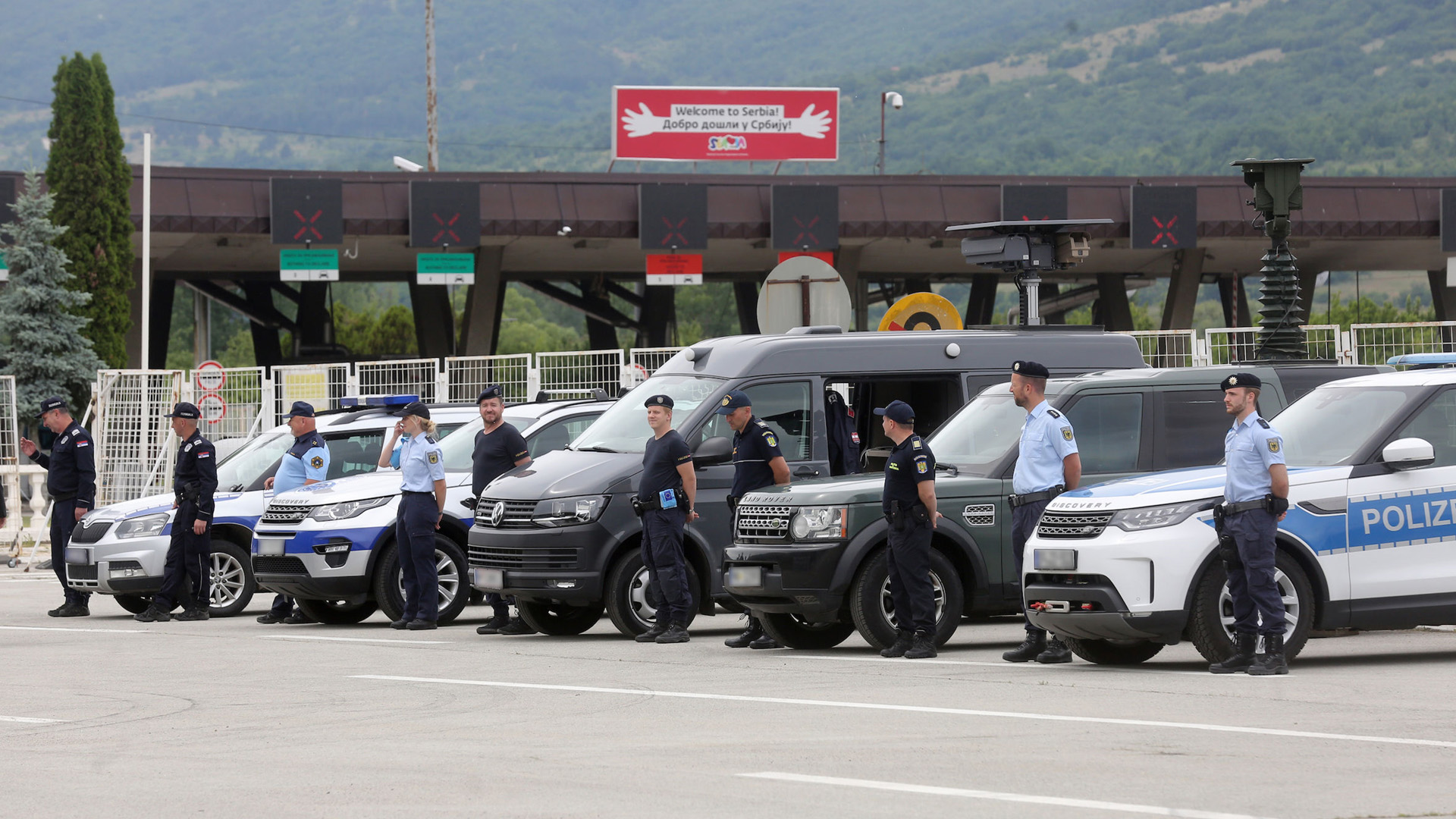
In 2019 Frontex expanded its operations beyond EU borders by launching its first joint operation in Albania. Based on Working Agreements on border management between the EU and non-EU countries, Frontex currently operates in Albania, Serbia, Montenegro, North Macedonia, and Moldova to address high migratory pressure and combat cross-border crime. Frontex deploys officers and equipment to assist these countries in detecting forged documents, stolen vehicles, illegal drugs, and weapons. By providing expertise and resources, Frontex strengthens the security and stability of these regions.
In 2019 Frontex expanded its operations beyond EU borders by launching its first joint operation in Albania. Based on Working Agreements on border management between the EU and non-EU countries, Frontex currently operates in Albania, Serbia, Montenegro, North Macedonia, and Moldova to address high migratory pressure and combat cross-border crime. Frontex deploys officers and equipment to assist these countries in detecting forged documents, stolen vehicles, illegal drugs, and weapons. By providing expertise and resources, Frontex strengthens the security and stability of these regions.
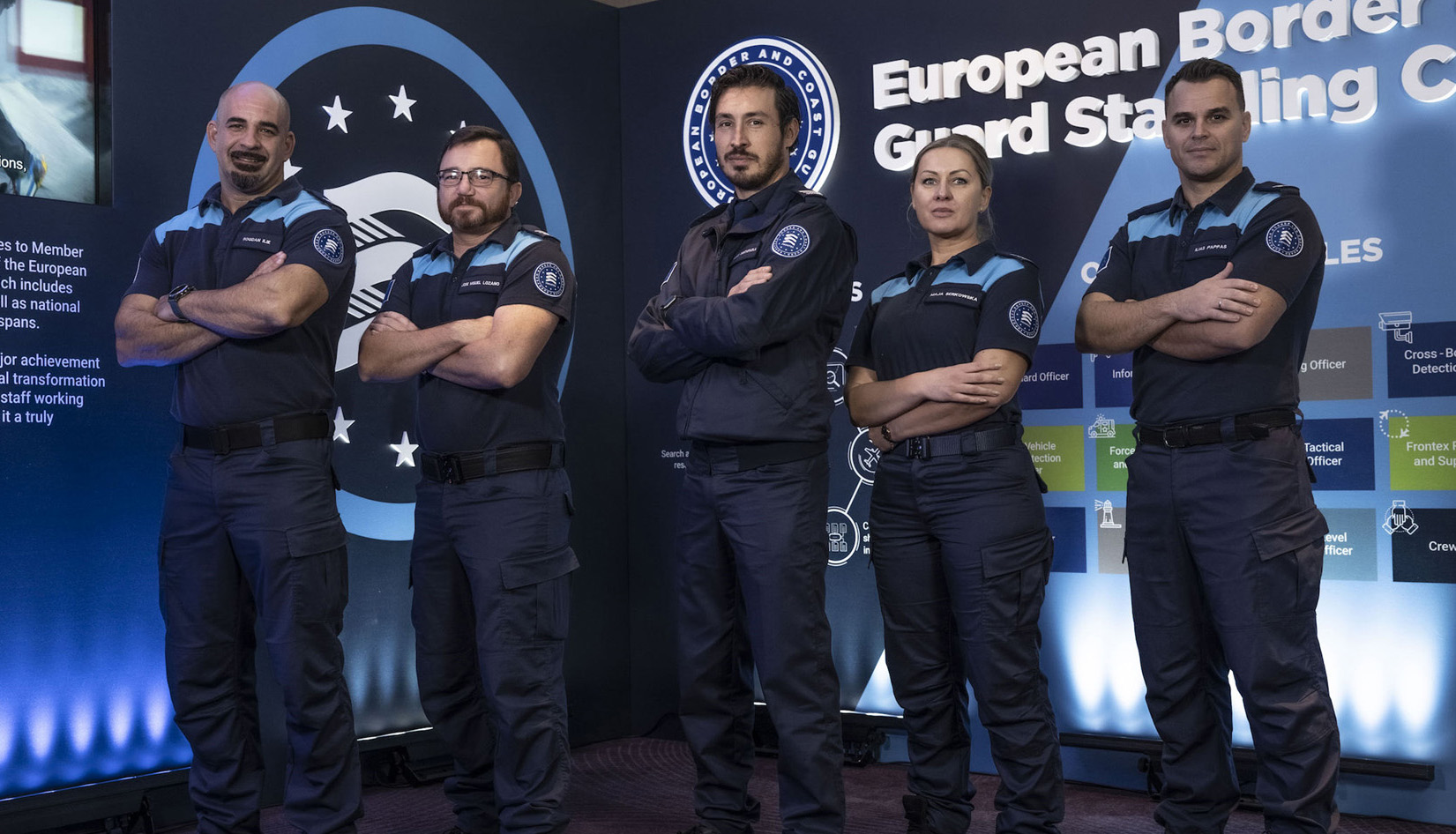
The 2019 mandate revision brought about the creation of the Standing Corps and significantly expanded Frontex’s role in combatting cross-border crime. This not only emphasised the Agency’s responsibility to combat such crimes but also broadened the definition to include attempted criminal activity.
This substantial shift underscores the Agency’s transformation from a border management agency to a key player in European law enforcement.
The 2019 mandate revision brought about the creation of the Standing Corps and significantly expanded Frontex’s role in combatting cross-border crime. This not only emphasised the Agency’s responsibility to combat such crimes but also broadened the definition to include attempted criminal activity.
This substantial shift underscores the Agency’s transformation from a border management agency to a key player in European law enforcement.
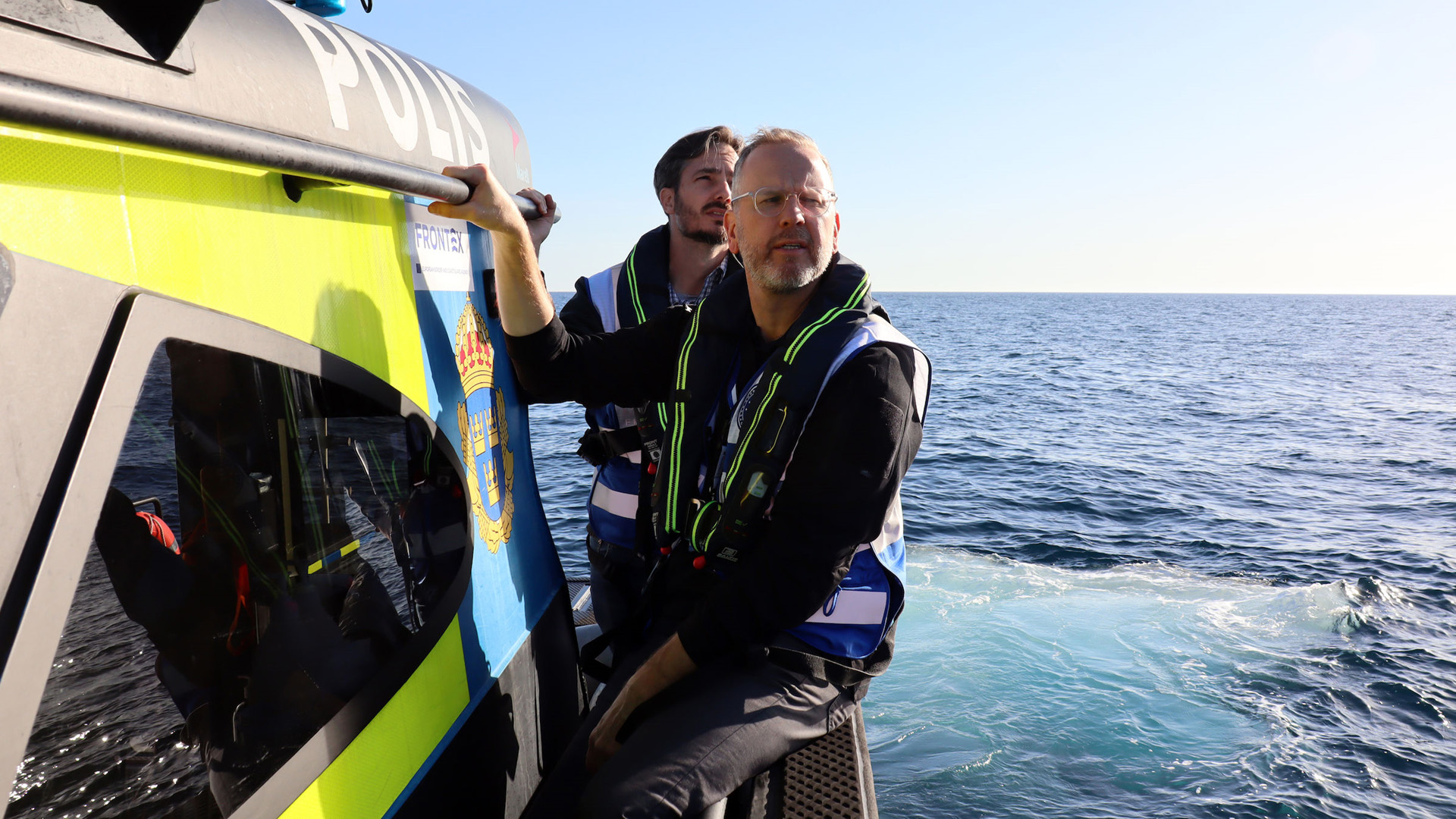
In 2020 Frontex recruited a new Fundamental Rights Officer and Monitors. This significant step aimed to strengthen Frontex’s commitment to human rights. The Fundamental Rights Officer (FRO) is tasked with overseeing Frontex’s compliance with fundamental rights obligations under EU and international law, advising the Executive Director on related issues, and conducting investigations into potential violations. The FRO and the Fundamental Rights Monitors play a crucial role in ensuring that Frontex operations respect, protect, and promote human rights. By monitoring activities, providing training, and handling complaints, they contribute to maintaining respect for fundamental rights within the Agency and its operations.
In 2020 Frontex recruited a new Fundamental Rights Officer and Monitors. This significant step aimed to strengthen Frontex’s commitment to human rights. The Fundamental Rights Officer (FRO) is tasked with overseeing Frontex’s compliance with fundamental rights obligations under EU and international law, advising the Executive Director on related issues, and conducting investigations into potential violations. The FRO and the Fundamental Rights Monitors play a crucial role in ensuring that Frontex operations respect, protect, and promote human rights. By monitoring activities, providing training, and handling complaints, they contribute to maintaining respect for fundamental rights within the Agency and its operations.

In December 2020, the first cohort of the Frontex Standing Corps graduated, marking a significant milestone in European border security. The EU’s first uniformed service with executive powers is designed to bolster border protection and respond to emerging security challenges. By 2027 the Standing Corps is expected to grow to a force of 10,000 personnel, demonstrating the EU’s commitment to a robust, effective and integrated European border management system.
In December 2020, the first cohort of the Frontex Standing Corps graduated, marking a significant milestone in European border security. The EU’s first uniformed service with executive powers is designed to bolster border protection and respond to emerging security challenges. By 2027 the Standing Corps is expected to grow to a force of 10,000 personnel, demonstrating the EU’s commitment to a robust, effective and integrated European border management system.
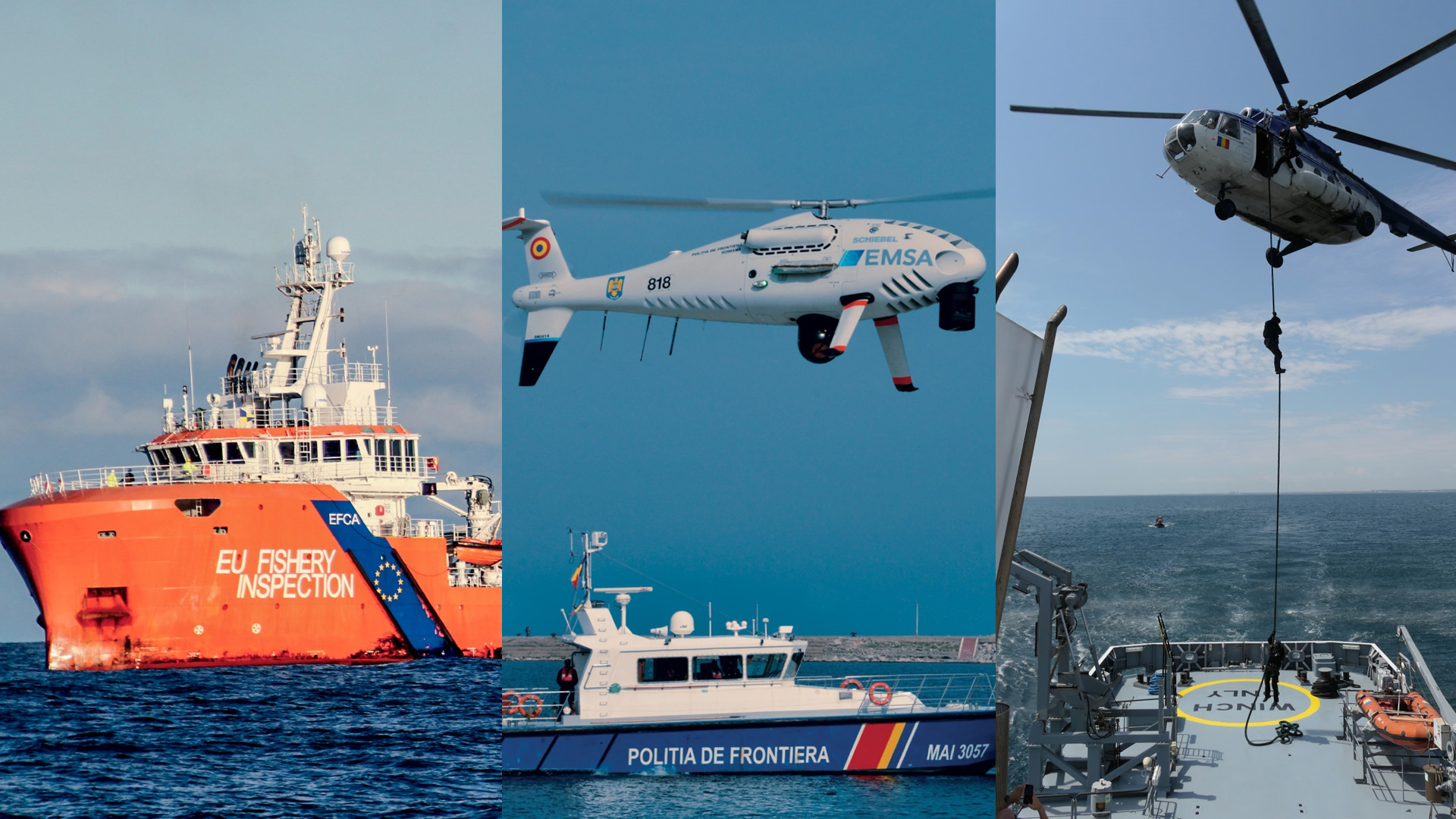
In 2021 Frontex, the European Fisheries Control Agency (EFCA), and the European Maritime Safety Agency (EMSA) signed a working agreement to enhance cooperation on coast guard functions. This collaboration aims to improve efficiency and effectiveness in maritime operations. Each year, Frontex organises joint Multipurpose Maritime Operations, where together with Member States and other agencies, Frontex undertakes tasks such as border control, fisheries control, customs activities, law enforcement, environmental protection, and search and rescue. These operations contribute to a safer and more secure maritime environment.
In 2021 Frontex, the European Fisheries Control Agency (EFCA), and the European Maritime Safety Agency (EMSA) signed a working agreement to enhance cooperation on coast guard functions. This collaboration aims to improve efficiency and effectiveness in maritime operations. Each year, Frontex organises joint Multipurpose Maritime Operations, where together with Member States and other agencies, Frontex undertakes tasks such as border control, fisheries control, customs activities, law enforcement, environmental protection, and search and rescue. These operations contribute to a safer and more secure maritime environment.
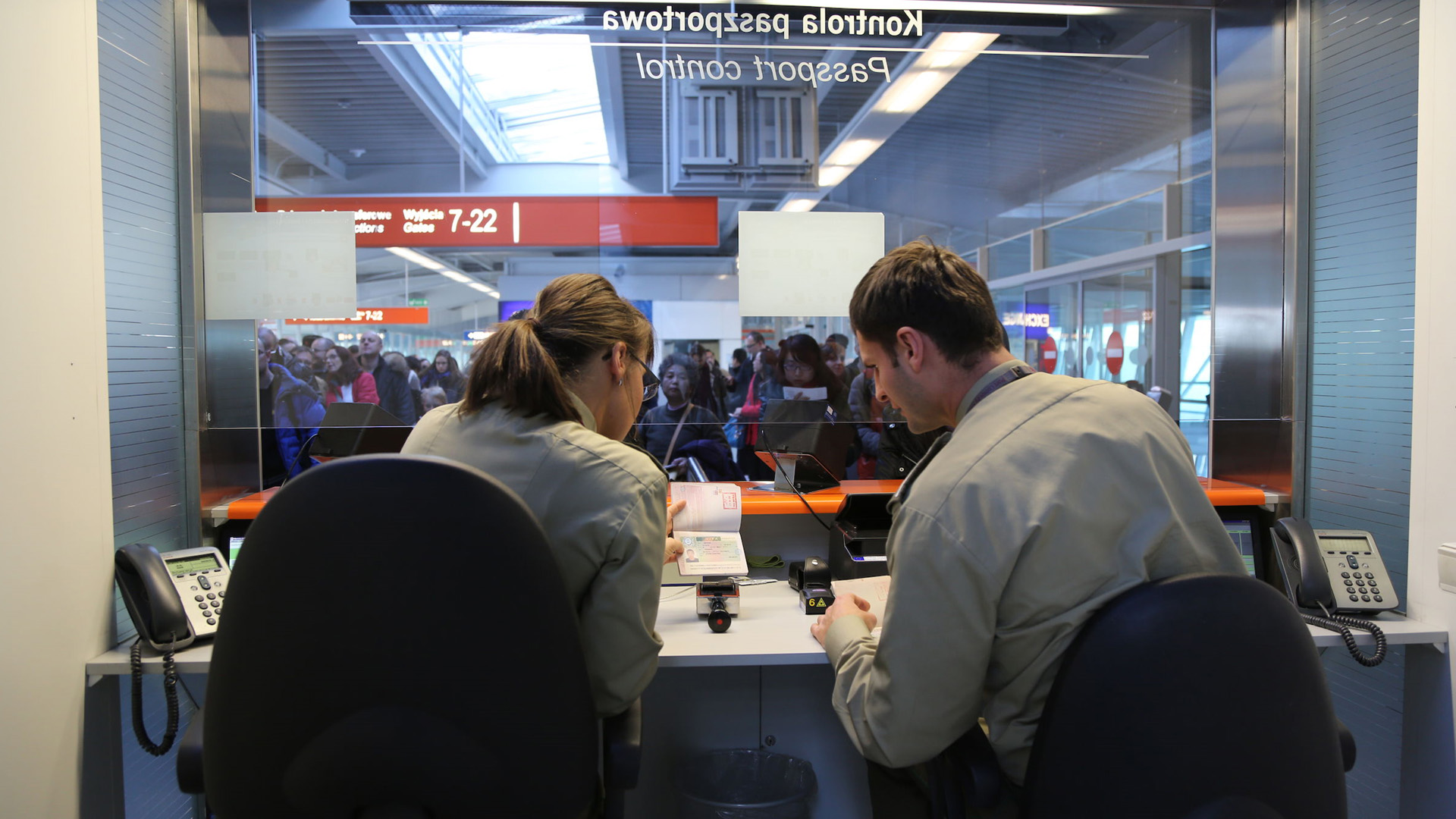
In September 2018, work began on the European Travel Information and Authorisation System (ETIAS). This IT system will conduct advance checks on visa-exempt travellers entering the Schengen Area, enhancing security and facilitating border procedures. ETIAS is set to become operational in 2025, with its central unit operating under the auspices of Frontex.
In September 2018, work began on the European Travel Information and Authorisation System (ETIAS). This IT system will conduct advance checks on visa-exempt travellers entering the Schengen Area, enhancing security and facilitating border procedures. ETIAS is set to become operational in 2025, with its central unit operating under the auspices of Frontex.
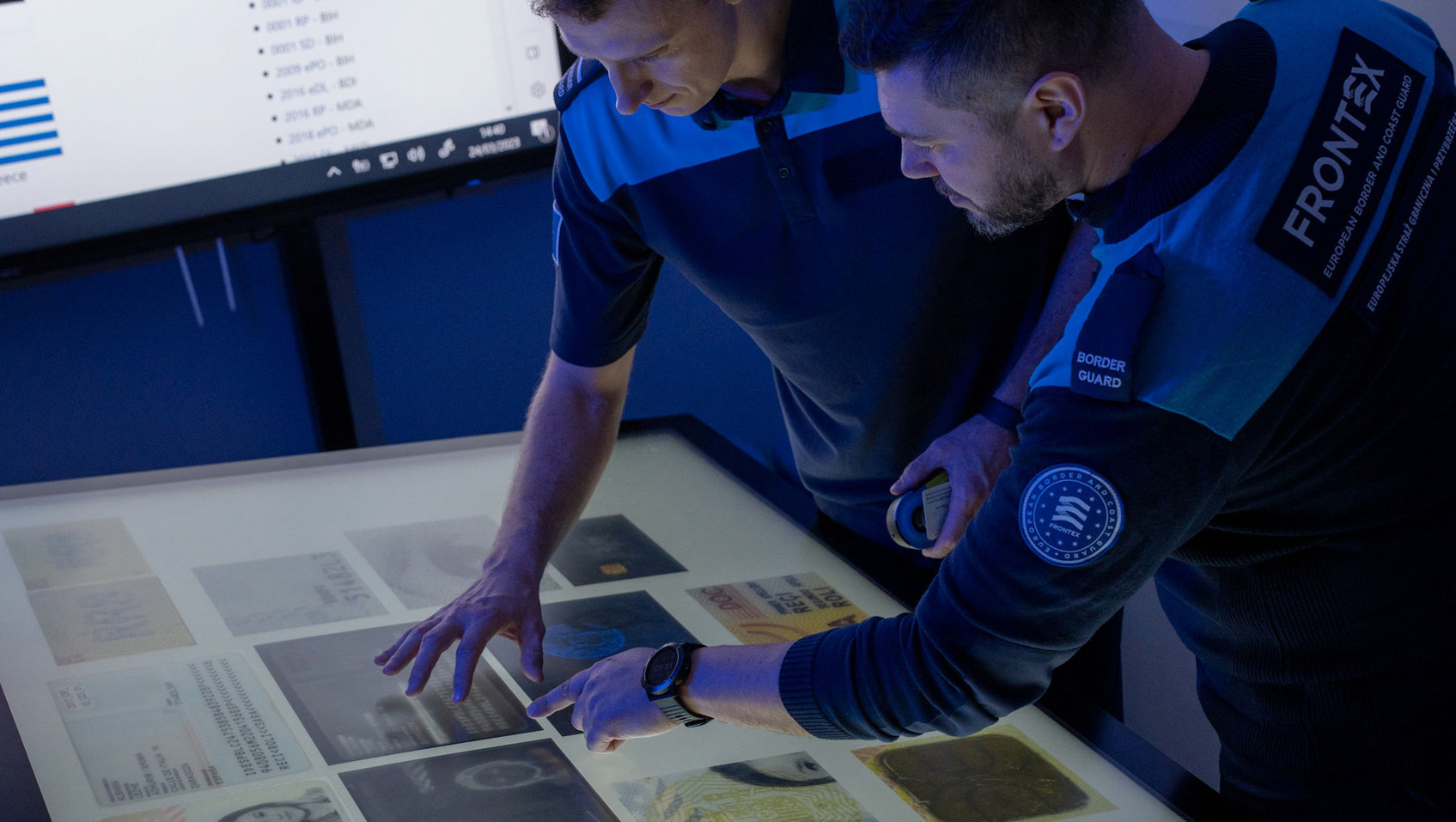
In 2021 the Frontex Interpol Electronic Library Document System (FIELDS) was launched, a state-of-the-art database and toolset designed to support frontline border guards in document verification. This advanced system empowers border control officers with the necessary resources to efficiently and accurately identify fraudulent documents, ensuring enhanced security at external borders.
In 2021 the Frontex Interpol Electronic Library Document System (FIELDS) was launched, a state-of-the-art database and toolset designed to support frontline border guards in document verification. This advanced system empowers border control officers with the necessary resources to efficiently and accurately identify fraudulent documents, ensuring enhanced security at external borders.
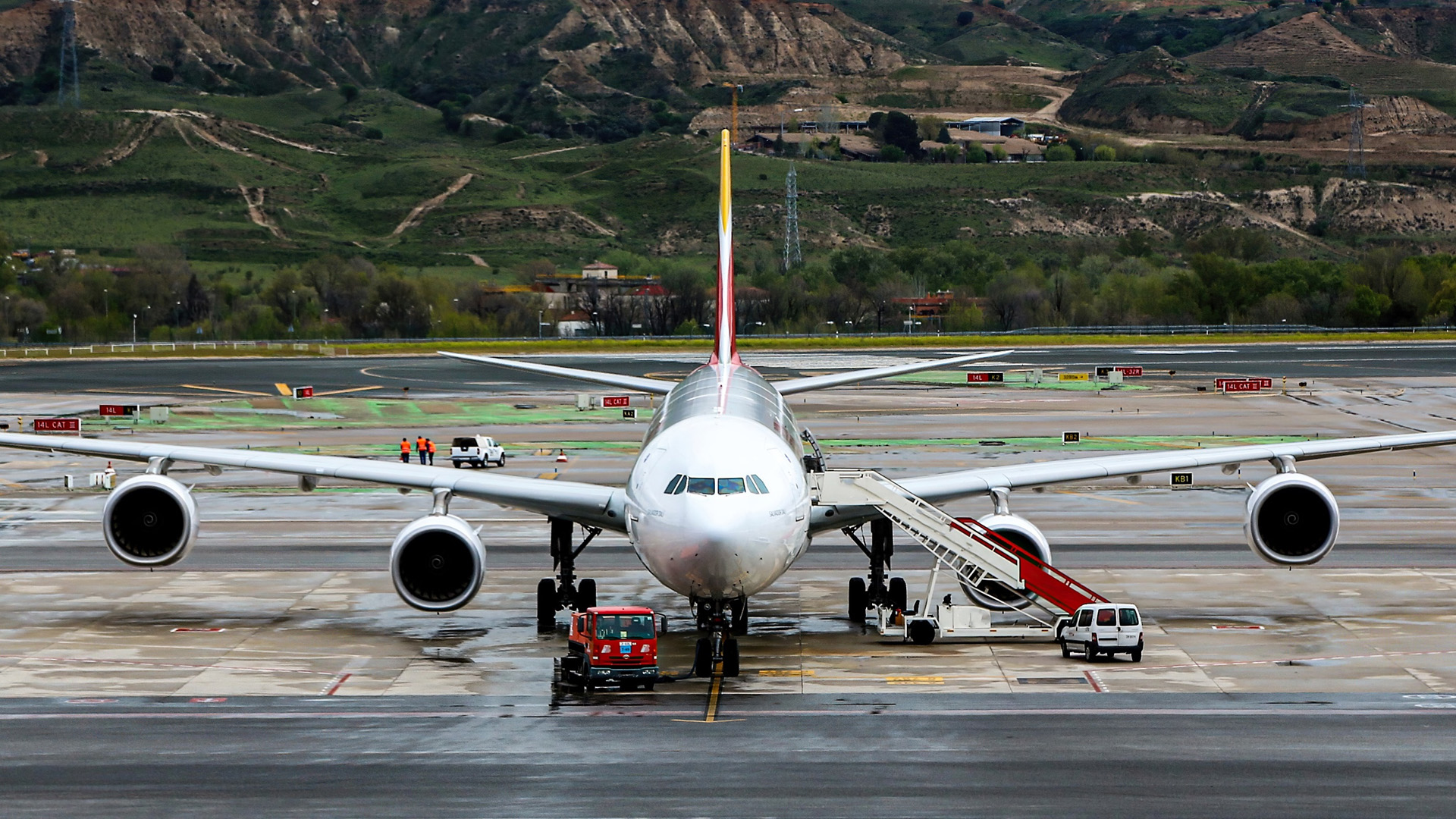
In 2021 Frontex initiated a new era of joint voluntary returns with charter flights. The Agency provides comprehensive support to EU and Schengen countries throughout the return process, from initial planning and coordination to the implementation of return operations and post-arrival assistance. This collaborative approach streamlines the return process and ensures a dignified treatment of individuals being returned to their countries of origin.
In 2021 Frontex initiated a new era of joint voluntary returns with charter flights. The Agency provides comprehensive support to EU and Schengen countries throughout the return process, from initial planning and coordination to the implementation of return operations and post-arrival assistance. This collaborative approach streamlines the return process and ensures a dignified treatment of individuals being returned to their countries of origin.
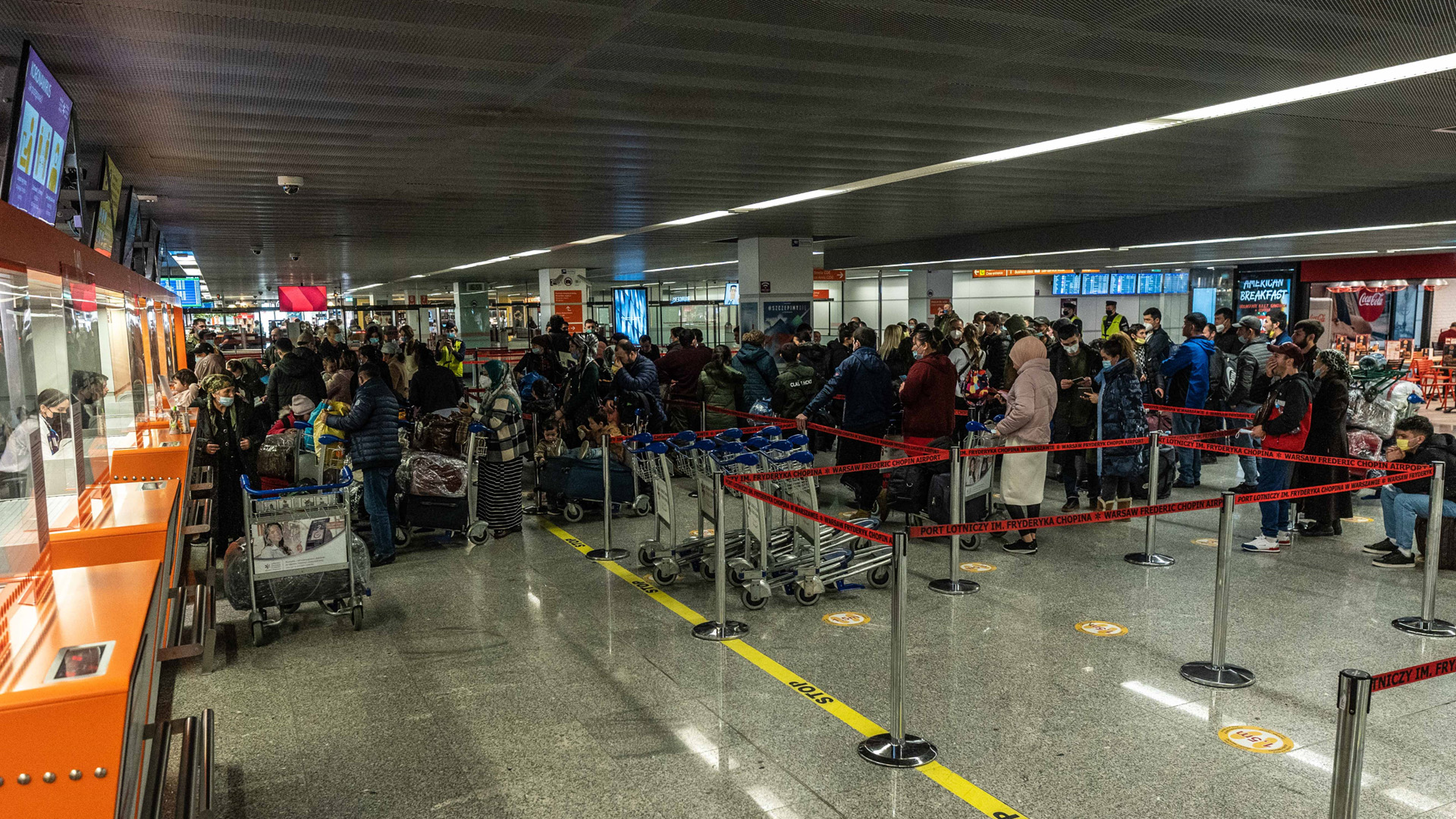
In 2022 Frontex expanded its role to include reintegration services for returned migrants. The Agency supports Member States and Schengen Associated Countries in offering both immediate post-arrival assistance and longer-term post-return assistance to non-EU nationals. This comprehensive support includes assistance with accommodation, medical care, job counselling and training, education, family reunification, and other essential services, helping returnees reintegrate into their societies of origin.
In 2022 Frontex expanded its role to include reintegration services for returned migrants. The Agency supports Member States and Schengen Associated Countries in offering both immediate post-arrival assistance and longer-term post-return assistance to non-EU nationals. This comprehensive support includes assistance with accommodation, medical care, job counselling and training, education, family reunification, and other essential services, helping returnees reintegrate into their societies of origin.
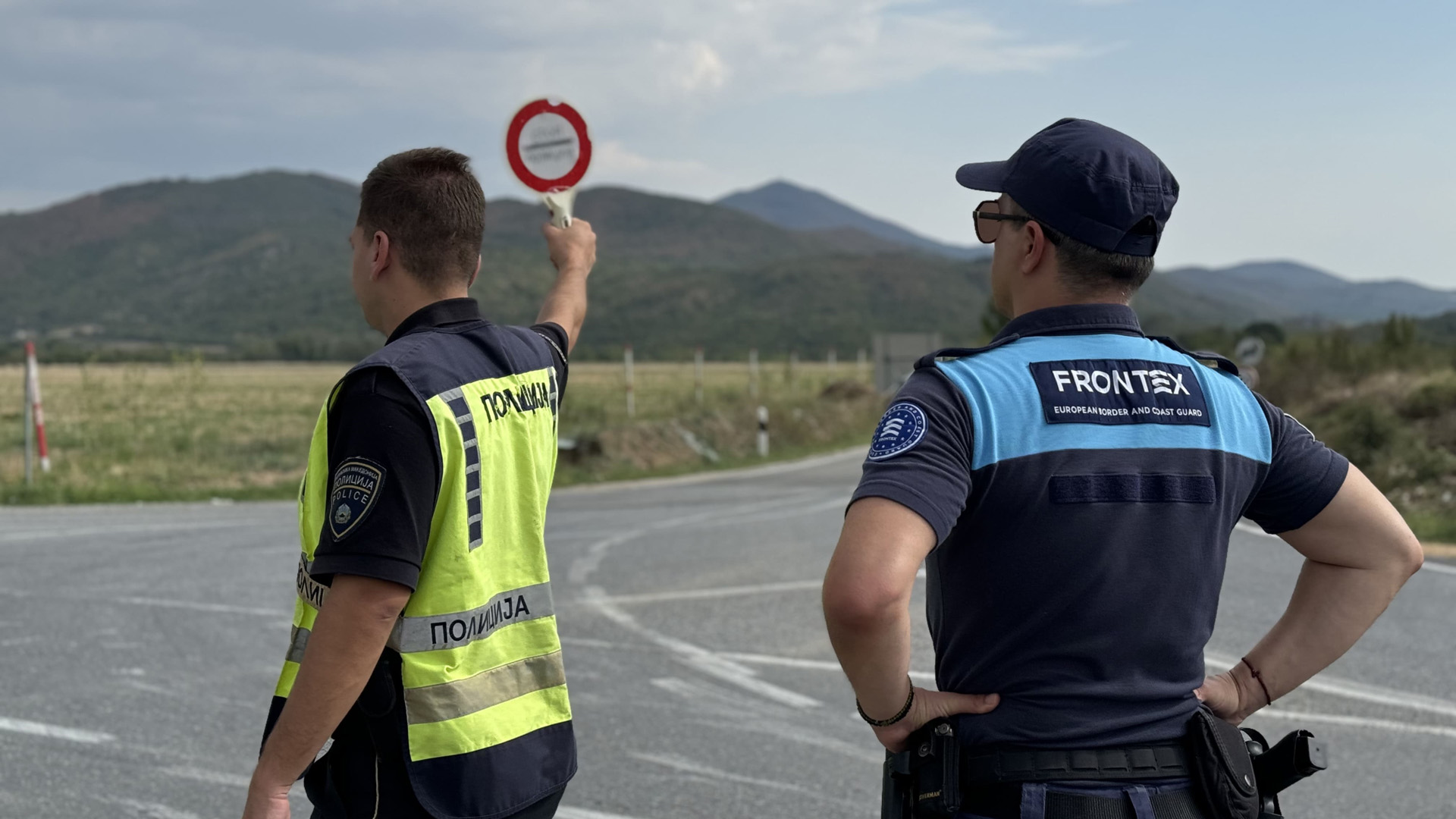
In 2024 the European Union adopted the Pact on Migration and Asylum, a comprehensive set of rules aimed at managing migration and establishing a common asylum system. Frontex is set to play a pivotal role in implementing this new framework. The Pact prioritises strong and secure external borders, the protection of human rights, and solidarity among Member States. It also empowers the EU to provide greater support to frontline Member States during periods of increased migratory pressure, crossborder crime, or attempts by non-EU countries to exploit migration for political purposes.
In 2024 the European Union adopted the Pact on Migration and Asylum, a comprehensive set of rules aimed at managing migration and establishing a common asylum system. Frontex is set to play a pivotal role in implementing this new framework. The Pact prioritises strong and secure external borders, the protection of human rights, and solidarity among Member States. It also empowers the EU to provide greater support to frontline Member States during periods of increased migratory pressure, crossborder crime, or attempts by non-EU countries to exploit migration for political purposes.
